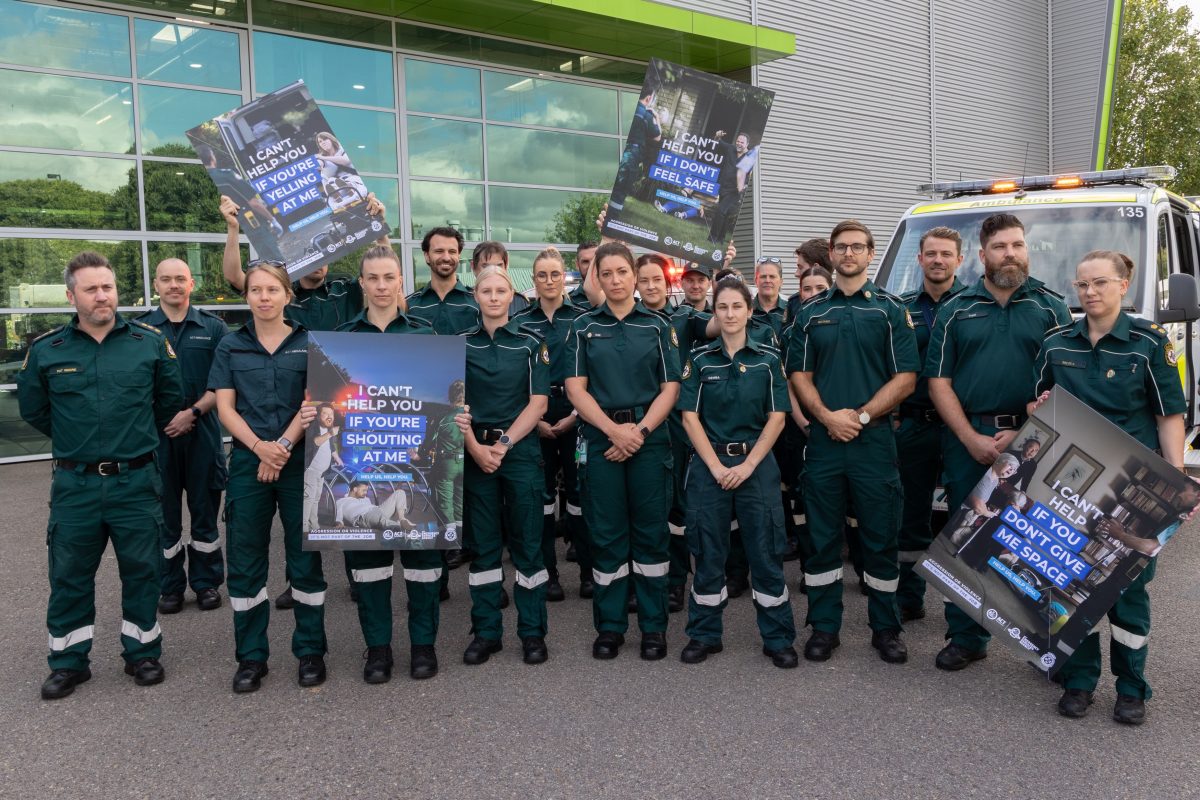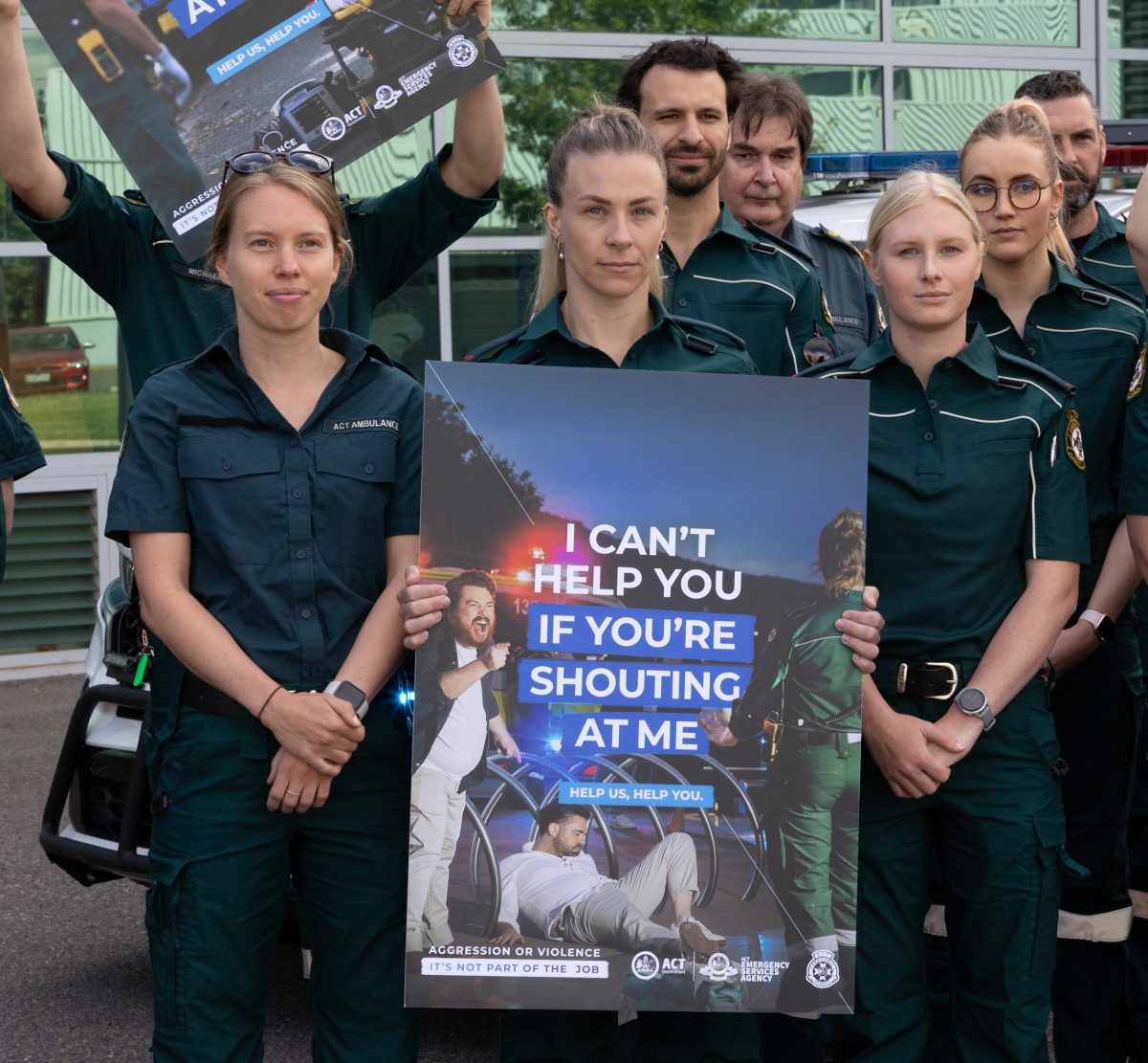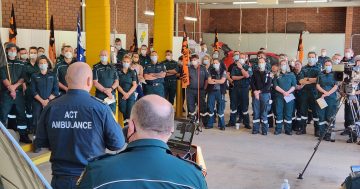
Paramedics want Canberrans to know aggression and violence towards them are never ok. Photo: ESA Media.
Yelling, spitting, biting, hitting, kicking and punching are just some of the dangers facing our paramedics as they work to save lives.
Our emergency providers have had enough.
The ACT Ambulance Service (ACTAS) and Emergency Services Agency (ESA) have launched a new campaign to inform the community that violence or intimidation towards their workers won’t be tolerated.
“Regrettably, instances of occupational violence have been increasing over the last number of years,” ACTAS Chief Officer Howard Wren said.
“Our workers should not be in a situation where they feel unsafe. If they feel unsafe, they’re not able to help you or your family members in the way that they are trained to do.”
He said reports of occupational violence had tripled in the past few years and described it as a “previously underreported issue”.
In 2022 there were 105 reports of occupational violence towards ACTAS staff: 51 reports of physical abuse and 54 of verbal abuse.
While paramedics understand they could be interacting with someone on the worst day of their lives, they want people to know that’s not an excuse for aggression and violence.
Chief Officer Wren said the worst cases usually occurred when people were intoxicated.
“Frequently, it’s not actually the patient, it’s the relatives and bystanders, and they have possibly unrealistic expectations about what care may or may not be provided,” he said.
“When people are intoxicated, it becomes a somewhat uncontrolled situation, and that can lead to a very unsafe situation.”

Shouting, swearing, intimidation and physical violence are some of the ways paramedics are prevented from doing their jobs. Photo: ESA Media.
The tolls can go beyond the physical, with psychological impacts also reported.
Chief Officer Wren said there were at least one to two members of staff each year who were so impacted by the violence they experienced they couldn’t continue with the job.
“Their effectiveness to be able to do their job is impaired [at the time] and it then moves on to the individual impacts,” he said.
“So we have people, even without the context of a physical assault, just the mere fact that they may have been threatened and abused, they may end up suffering a psychological injury.
“Then obviously, in the case where people have been physically assaulted, their career may be changed completely by the fact that they’re no longer able to continue in the job.”
ACTAS introduced a new occupational violence framework at the start of 2022 to educate staff about identifying the risk of violence and aggression, and how they could respond to a situation to either prevent something from happening or minimising it.
“As part of the rollout, staff undertake a full day face-to-face training, with supporting resources and eLearning training,” an ESA spokesperson said.
“Since the introduction of the framework and training, there has been a quarter-on-quarter reduction in episodes of physical violence.”
It’s up to each paramedic to decide their safety threshold, but they’re responsible for their own duty of care first.
Chief Officer Wren said the framework had encouraged a more positive reporting culture and let first responders know it’s ok not to put themselves in dangerous situations.
“If [our staff] arrive at a case and it appears that they are entering an unsafe environment, they are to withdraw and wait for assistance or for the circumstance to change to where they are much safer,” he said.
“If the situation they are already in changes to a point where they feel unsafe, then we have also said you are permitted to withdraw to a place of safety.
“Our threshold of tolerating [violence towards staff] is extremely low.”





















